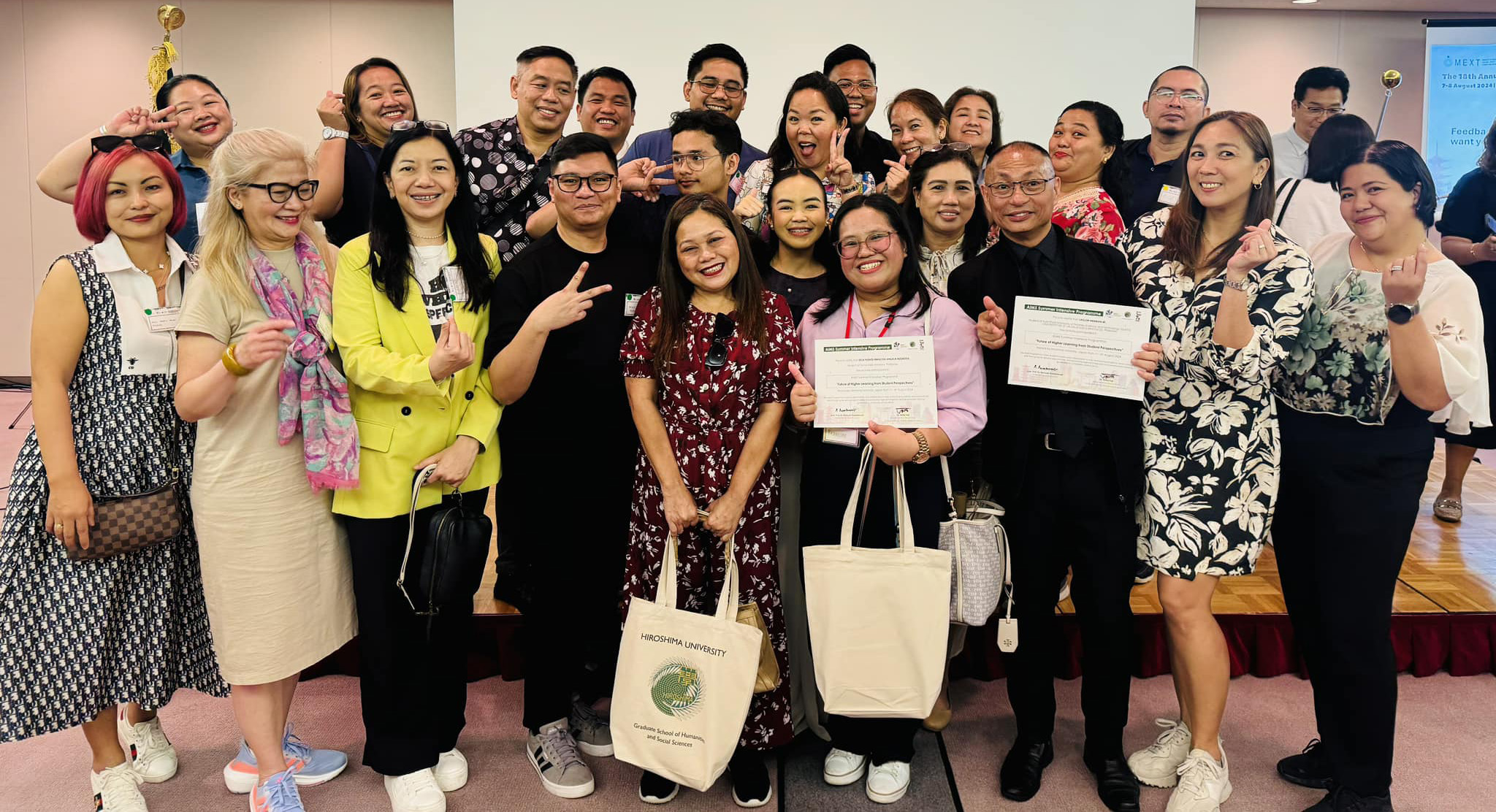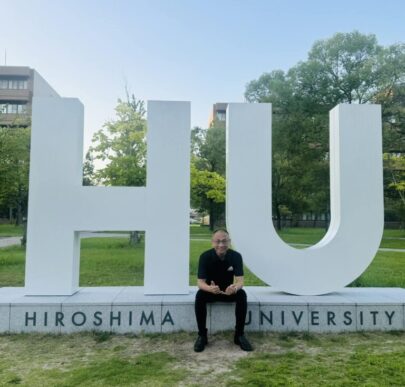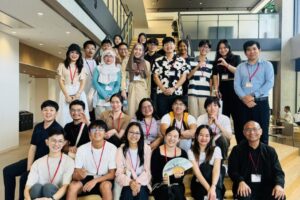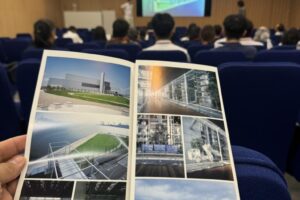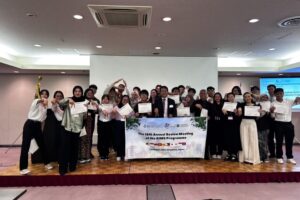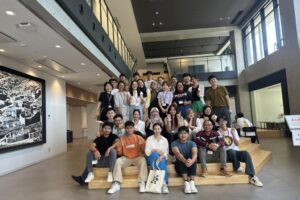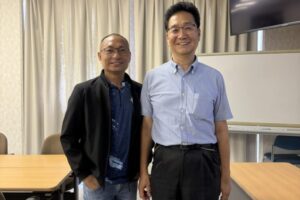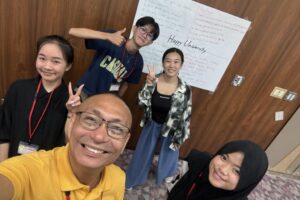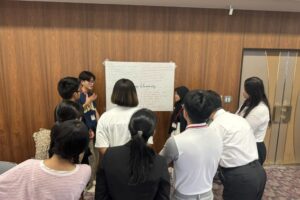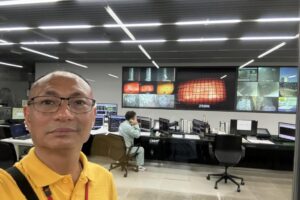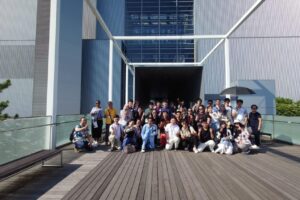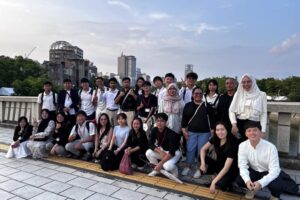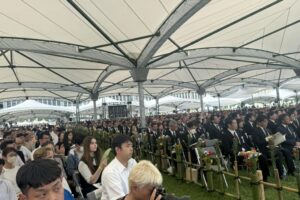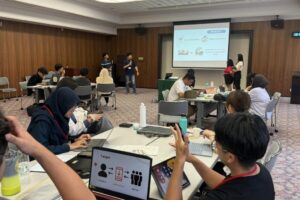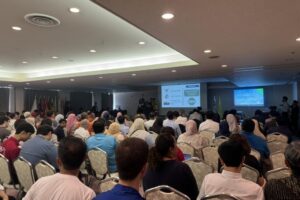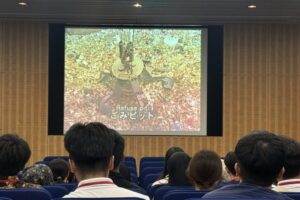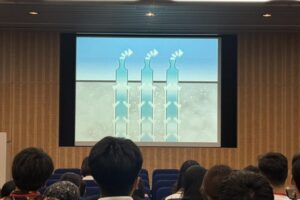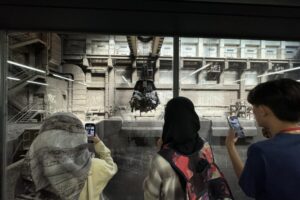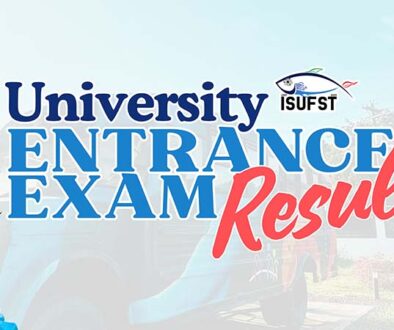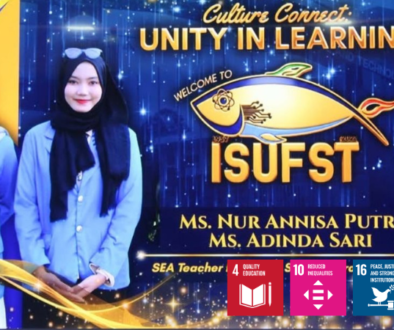On August 2, students engaged in “Ideas Mining” workshops aimed at stimulating innovative thinking and collaborative problem-solving. The afternoon featured an educational tour of the Naka Incineration Plant, offering valuable insights into Japan’s environmental sustainability practices.
August 3 was dedicated to lectures and discussions at Hiroshima University’s Graduate School for International Development and Cooperation (IDEC). Students delved into cutting-edge topics such as “Society 5.0 and the Future of University,” “Diversity and Inclusiveness,” and “What Makes a Good Teacher?” These sessions, led by distinguished professors, prompted participants to reflect on the future of education and their roles as emerging leaders.
The fourth day centered on preparation for a mid-program presentation. Students received guidance on creating effective presentation slides, enhancing public speaking skills, and overcoming common presentation challenges. In the afternoon, participants presented their initial ideas and insights, applying the knowledge gained from previous sessions.
A pivotal part of the program occurred on August 5 and 6, with visits to Hiroshima’s Peace Memorial Park and attendance at the Peace Memorial Ceremony. These experiences allowed participants to reflect on global peace and the profound impact of history on contemporary society. A particularly emotional moment was hearing the vivid accounts of an A-bomb survivor Michiko Kono and a Jesuit priest who narrated how his spiritual director Fr. Pedro Arrupe, SJj, saved the lives of more then 150 survivors at ground zero, providing a deeply personal perspective on the importance of peace and being a person for others.
The final days of the program were dedicated to preparing and delivering final presentations. On August 8, students showcased their learning and group work at the International Conference Center Hiroshima. The delegates also attended the 18th Annual Review Meeting of AIMS, followed by a wrap-up session and a farewell lunch. August 9 marked the end of the program as delegates bid farewell to their colleagues and departed for their respective destinations.
Initiated in 2010, the AIMS Programme has been a transformative experience for about 7,000 students, enriching their education through living and studying in other countries. It facilitates student mobility and collaboration between Asia and other regions in the world, promoting academic and cross-cultural skills development, regional integration, and development, among governments, universities, and students. Many alumni of the program have described their exchange experiences as life-changing and have made significant contributions to regional understanding, cooperation, and friendship.
Dr. Lagon’s involvement in the AIMS Programme is a testament to ISUFST’s commitment to internationalization, professional development, and collaborative education. By participating in this program, ISUFST further solidifies its role in contributing to the sustainable development of the ASEAN region and Asia as a whole, which is in line with AIMS’ goals of fostering globalized human resources and promoting greater inclusivity through multilateral efforts. (PAMMCO)
